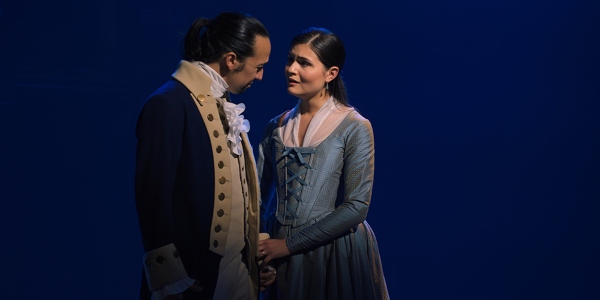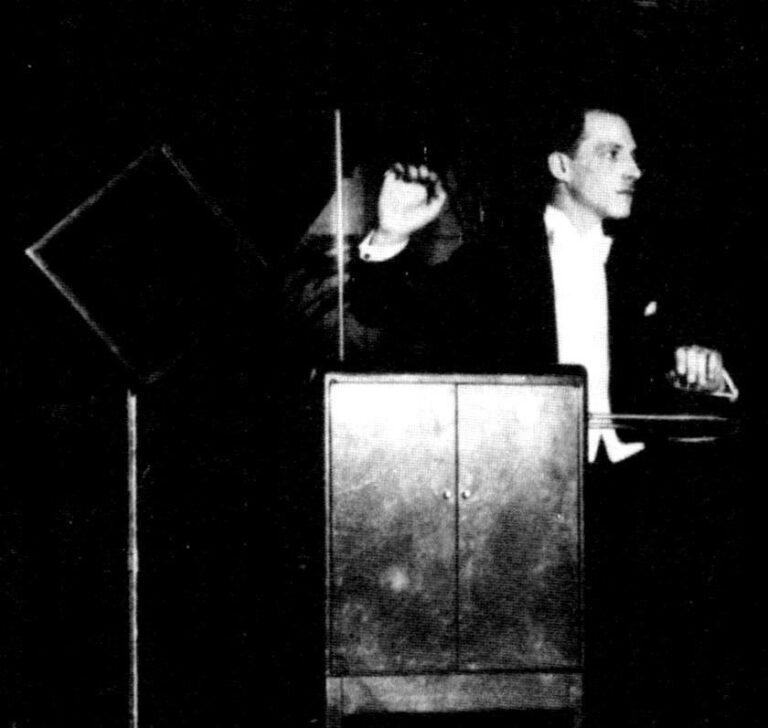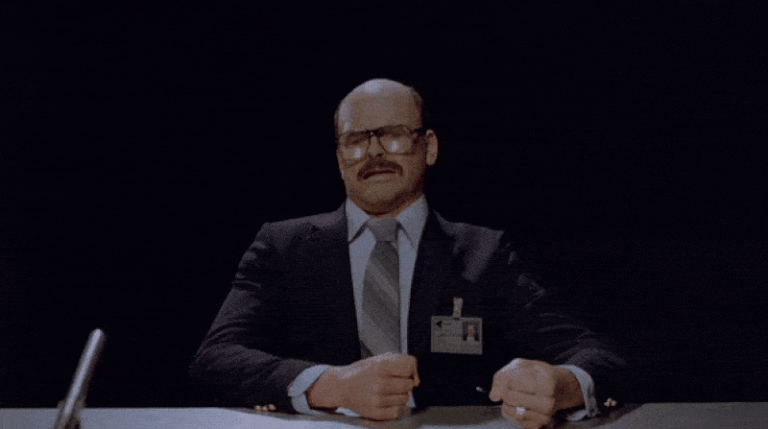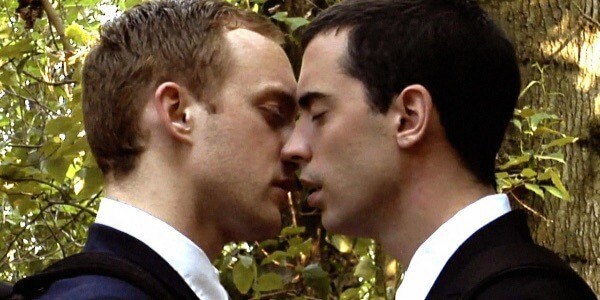Interview With David Bly And Leah Rudick, Writers And Stars Of SWEET PARENTS
Sweet Parents is a feature film fresh off the festival circuit. It follows a young couple: Will, a talented but overlooked chef, and Gabby, a yet-unrecognized sculptor, struggling to get by in New York. When each finds an interested and wealthy older companion who supports and bolsters their career, things become tense as they try to balance their time and emotions between each other and with their “sweet parents.” Sweet Parents explores the emotional tensity, and eventual boiling point, that comes from the pressure of choosing between what you love and who you love.
Film Inquiry had the pleasure of interviewing David Bly (director, writer, and lead actor) and Leah Rudick (writer and lead actor) of Sweet Parents. Interview edited for clarity.
Frances Maurer for Film Inquiry: Let’s start by talking about the narrative of Sweet Parents — it’s very unorthodox! Why did you decide to tell this story? Why do you find it timely?
David Bly: That’s such an interesting question given the year that we’ve all had. All of a sudden, we have a very new timely matter in terms of people’s cost of living, in a time when people are out of jobs and et cetera. The story comes from our experiences living in New York, where it’s such a grind to exist. I had so many survivor jobs, Leah had so many survivor jobs, and that’s just the nature of living in such a major metropolitan city.
We live in Los Angeles now, but when we first moved to New York, that was just a type of lifestyle that I knew people were living. I was fascinated by it because it’s just sort of a shortcut way to live. It went against everything I had moved to New York to become and learn of myself. And yet the realities of such a difficult city, and the grind, and the weight that it puts on you, you just try to find any single leg up that you can.
Now, even more so, the disparity in wealth especially in cities like New York is just on people’s minds all the time. That’s the zeitgeist: why is our generation having such a hard time surviving, let alone thriving?
I think this film takes a fun way of approaching that, but it sort of tricks the viewer into thinking it’s going to be something a bit more playful. Instead, it shows the actual struggle, and the actual hardship of succeeding in a city like New York, and the sacrifices you have to make, and the toll it takes on you.
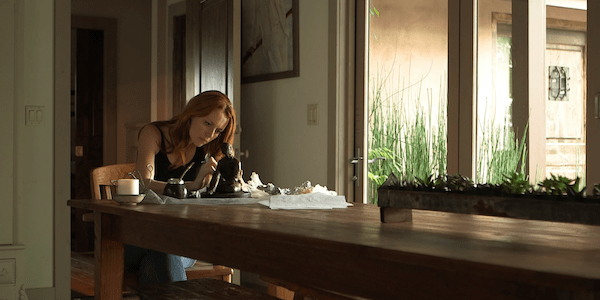
It seemed to me a very funny, roundabout sort of way of wealth redistribution.
Leah Rudick: Totally.
So when you two were writing, and when you [David Bly] were directing this film, how did you balance your vision as the writer or director with your vision as an actor? Do you write picturing yourself in the role, or do you try to fit yourself into it later?
Leah Rudick: Well I think that’s one of the great things about writing for yourself and knowing that you’re going to perform it, is that you are able to write and adjust based on how you perceive the character and how you envision performing it. I think it makes it easier to do that as opposed to having to delve into someone else’s words.
David Bly: Also, I feel like the script evolved so much over time with us. I started working on the script years before I’d ever met Leah, and then we met and started dating, and started working on the film together. It just kept evolving through the years based on our sensibilities as artists and writers, and also just based on the evolution of our own relationship, and what we felt a sacrifice would mean to us — versus what sacrifice meant to me 10 years before I started writing it, when I was a bit more immature.
So your relationship informed the relationship in the film?
David Bly: Definitely. I talk about this a lot — there was a scenario with a couple I knew in New York, and one of them was a writer, and they both read the script in its earliest incarnation. In its first incarnation, it focused more on the sexual nature of this relationship and the materialistic element of a sweet arrangement.
They were very complimentary, but they were kind enough to elaborate to me that if that was the focus of the film, the sexual jealousy, then no one over 35, 40, is going to care about this movie. Because that’s not necessarily the top priority of people who have been in a relationship for a long time.
So I was trying to figure out what that meant to me, and I was very lucky that at the same time I met Leah, and our relationship became the most important thing in my life. I fell immediately head over heels, and we’ve been together for now ten years.
And you immediately realize that you want so much for this other person. I wanted everything for Leah. I wanted her to succeed, I believed in her, I was so in awe of what she was trying to do in New York as an artist.
So that became the whole crux of the film, that you want everything for your partner. And you feel like you’re failing, that someone can just come in and change their life in a heartbeat, and what that does to your own feelings of self-worth. I didn’t understand that before I met her.
So me being in a relationship with Leah, and I think vice versa, taught us what would work best for this story, given how we wanted to tell it.
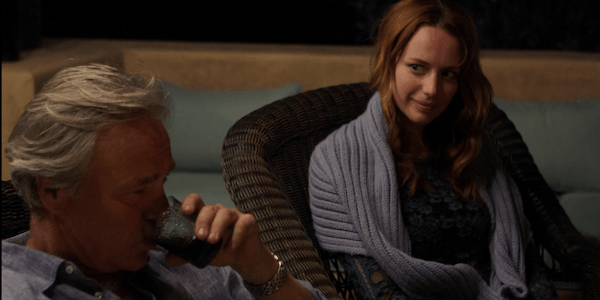
Leah Rudick: It became more about the envy of someone being able to offer opportunities to your partner that you can’t necessarily yourself, and to take them to the next level, as opposed to just being jealous that your partner is engaging with another person.
That definitely came across, and it was interesting to me that the protagonists have such different relationships with each of their sweet parents. What do you think constitutes a sugar relationship? How much does the intent or awareness have to be there? Because it seemed like it was there at varying levels at different points in the film.
Leah Rudick: Yeah, I think there are many different ways to have a relationship like that, and I think it’s often very much a gray area. It doesn’t necessarily have to be sexual. I feel like the term is just an easy blanket term for something that seems simple, but in the way that we created these relationships, they’re a lot more complicated and nuanced.
David Bly: Yeah, and I think we tried to mask the sexual component of these relationships. I remember during production and during the edits, people said that the audience isn’t going to know whether they had sex with their elder benefactor. And it’s like, that’s the whole point.
The unknown is what makes the audience respond to these relationships, but it also informs what my character knows. He thinks he has an understanding of what that relationship is, but it’s based on an understanding of what everyone thinks a sweet relationship is: access for sex.
Gabby’s [Leah’s character] relationship with Oscar starts so organically, just based on a mutual interest in art, and their own respective careers, and it’s such a foreign thing to my character because it’s what a lot of people think these relationships are, and it forces him to act impulsively to “catch up.”
It’s out of character for him, but what he wants for his partner is happening, and he’s being left behind. So it’s a total lasagna of emotions for Will. It’s a whole slew of emotions that he ultimately makes a mistake, but he doesn’t. Everything he wants for both of them comes true, but with a major sacrifice.
That breaking point was so visible.
David Bly: Yeah. It’s like, what is the one thing he could say about Gabby that is going to ruin their relationship, make her walk out on him, Oscar would follow her and console and help, and support, and Guylaine would then want to console me because she’s wise enough to realize he did that as the ultimate sacrifice for both of them to pursue their careers.
The style of Sweet Parents was another thing that was very distinctive. It was so hyperrealistic, the way it showed interactions very naturally and in their entirety, and there wasn’t really a score. How did you want this to affect the message and the aesthetic of the film?
David Bly: I had very long conversations with our cinematographer, Laura, who is brilliant, and one of the ways I tried to describe the feeling I wanted was “shoes in the shot.” Where it’s so cramped in these spaces, in the kitchen where he works in the beginning, he’s in the background, he’s not the featured chef in this restaurant, he’s just another person trying to survive in New York. Their apartment is cramped. So Laura’s or someone’s shoes would sometimes end up in the shot.
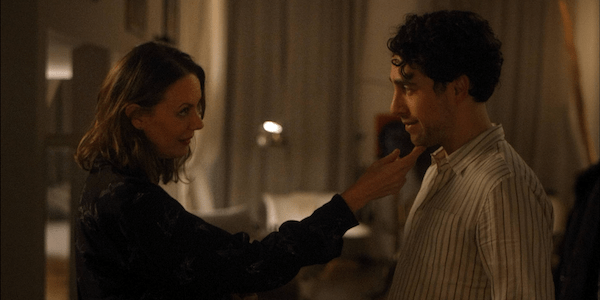
We wanted it to feel cramped and overwhelming for the characters, which would lead to the audience feeling that way as well. So many choices like that were meant to stray away from the classic New York film, which is like a love letter to New York, the birds chirping or the gondolas going through Central Park. But the characters in this film don’t have the time or money to be doing this kind of seemingly luxurious things.
The sound of the film, the look of the film, the drab colors in the apartment, are all supposed to represent a grittier version, an “F*** you” letter to New York.
I have to ask if the character at the beginning who suggests getting a sweet parent — is this based on a real person?
David Bly: Yes, based on a real person, a real conversation.
Leah Rudick: I feel like we both had people like this. We both worked in restaurants in New York, and we both met this type of person. It was one specific person for David, but there was someone I worked with who would come in with stories of where he’d been whisked away to that weekend, and what gifts he had, and it was so fascinating. Like, why are you working this restaurant job?
David Bly: There was someone who texted me this week after seeing the movie, and they knew exactly who it was.
Is this film supposed to be a warning of the dangers of sweet parents, or is this a lifestyle you would recommend, maybe to someone struggling in a big city?
David Bly: Really, to each their own. But if someone is in a serious relationship, I don’t know if I would recommend that path. I don’t know if it’s possible, and I know that that’s one of the questions we love to post to our audience. Was it worth it? Is it possible to have the balance of an arranged relationship while you’re also in a real, loving relationship?
No one can agree on an answer to that. It comes to the jealousy, and everyone feels differently about their own personal relationships. I hope that if people watch this movie, if they’re in a relationship, it makes them consider whether they’re doing everything they can to promote their partner.
Film Inquiry would like to thank David Bly and Leah Rudick for taking the time to speak with us!
Sweet Parents is streaming on a variety of platforms including Apple TV, iTunes, Amazon, and Google Play. Follow the movie on Instagram, Facebook, Twitter, and their website.
Watch Sweet Parents
Does content like this matter to you?
Become a Member and support film journalism. Unlock access to all of Film Inquiry`s great articles. Join a community of like-minded readers who are passionate about cinema – get access to our private members Network, give back to independent filmmakers, and more.
Join now!
